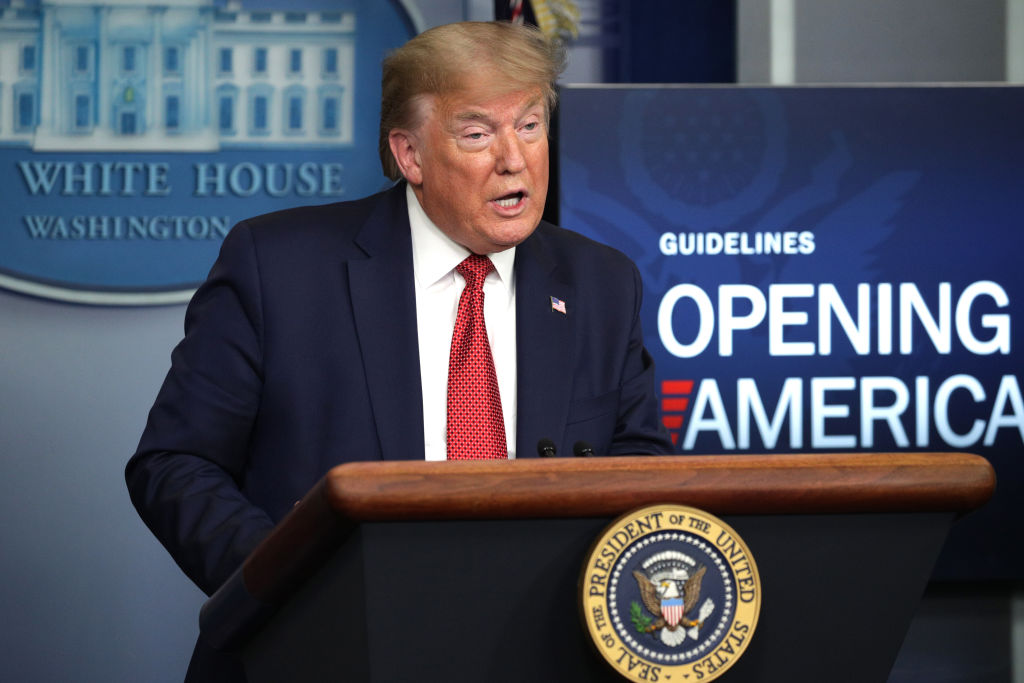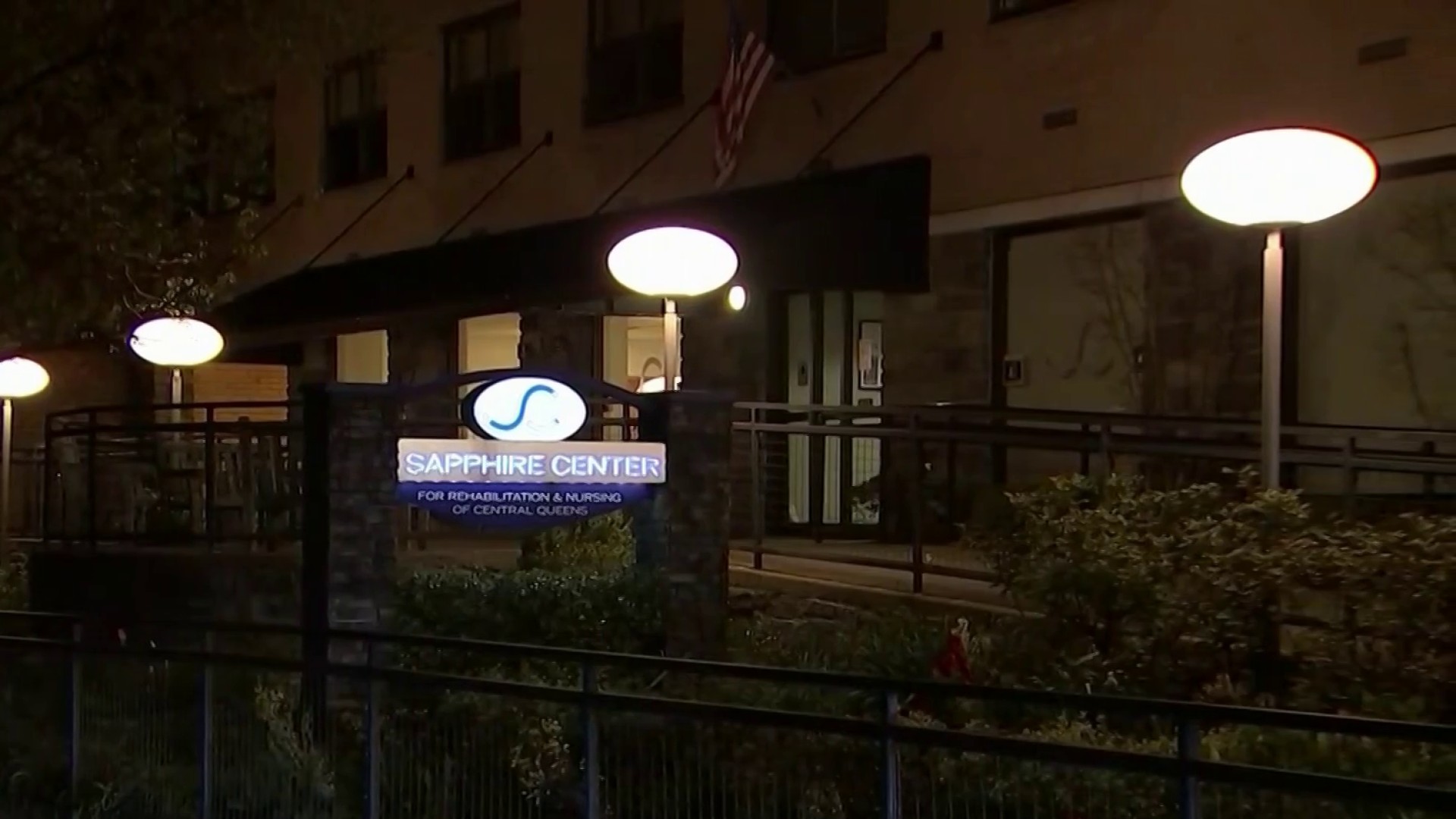China acknowledged Friday that the coronavirus death toll in the one-time epicenter city of Wuhan was nearly 50% higher than reported, underscoring just how seriously the official numbers of infections and deaths around the world may be understating the dimensions of the disaster.
Such figures can have a huge influence on governments' actions, as medical staffs struggle to figure out how to cope with surges of sick people and officials make crucial decisions about where to devote resources and how to begin easing lockdowns to resuscitate their economies.
As virus deaths mounted — with the U.S. reporting its highest one-day death toll yet at nearly 4,600 — the economic devastation from the restrictions is becoming even more shocking.
Coronavirus Pandemic Coverage
Get Tri-state area news delivered to your inbox.> Sign up for NBC New York's News Headlines newsletter.
The number of people applying for unemployment benefits in the U.S. rose by 5.2 million, bringing the four-week total to a staggering 22 million. China’s economy shrank 6.8% in the quarter ending in March compared with the same period a year ago, its worst contraction since market-style economic reforms began in 1979. And in Europe, car sales tanked 55% last month.
Authorities say infections and deaths have been under-reported almost everywhere. Thousands have died with COVID-19 symptoms — many in nursing homes, which have been ravaged by a disease that hits the elderly the hardest — without being tested. Four months into the outbreak, nations are still struggling to increase their testing capacity, and many are still far from their goal.
Spain on Friday ordered the country’s 17 autonomous regions to adopt uniform criteria on counting the dead. The country has recorded more than 19,000 deaths, but the system leaves out patients who had symptoms but were not tested before they died.
“We are probably only seeing the tip of the iceberg,” said Barcelona University epidemiologist Antoni Trilla, who heads the Spanish government’s expert panel on the epidemic.
Italian officials have acknowledged that the country's official COVID-19 death toll of more than 22,000 — second only to that of the United States — understates the true number, primarily because it doesn't include the hundreds of dead in nursing homes who were not tested.
Britain’s official death toll, which is approaching 14,000, has come under increasing scrutiny because it does not include any deaths at home or in nursing homes.
The country’s statistics agency has indicated the actual number of dead could be around 15% higher. Other experts think it will end up being a lot more than that.
Anthony Costello, a professor at the Institute for Global Health at University College London, said Britain could see 40,000 deaths by the time the first wave of the outbreak is over.
In Russia, authorities reported relatively low numbers of cases until late March. That raised suspicions, given the country's history of concealing embarrassing truths. Doctors treating coronavirus patients in Moscow said last week that the vast majority of all pneumonia cases in Russia are probably caused by the new virus.
The official death toll soared by more than half in New York City earlier this week when health authorities began including people who probably had COVID-19 but died without being tested. Nearly 3,800 deaths were added to the city’s count.
Worldwide, the outbreak has infected more than 2.1 million people and killed over 145,000, according to a Johns Hopkins University tally based on figures supplied by government health authorities around the globe. The death toll in the U.S. topped 33,000, with more than 670,000 confirmed infections.
China raised its overall death toll to over 4,600 after Wuhan, where the outbreak first took hold, added nearly 1,300 deaths. Questions have long swirled around the accuracy of China’s case reporting, with critics saying officials sought to minimize the outbreak that began in December.
Africa could see 300,000 deaths even under the best-case scenario, according to a report that cites modeling by Imperial College London. The continent has more than 18,000 confirmed virus cases, but experts says Africa is weeks behind Europe in the pandemic.
On the economic front, the U.S. unemployment could reach 20% in April, the highest since the Depression of the 1930s. Layoffs are spreading well beyond stores, restaurants and hotels to white-collar professionals such as software programmers and legal assistants.
President Donald Trump told the nation’s governors that restrictions could be eased to allow businesses to reopen over the next several weeks in places that have extensive testing and a marked decrease in COVID-19 cases.
“We are not opening all at once, but one careful step at a time,” he said.
How Coronavirus Has Grown in Each State — in 1 Chart
New York has quickly become the epicenter of the American coronavirus outbreak. This chart shows the cumulative number of cases per state by number of days since the 10th case.
Source: Johns Hopkins University
Credit: Amy O’Kruk/NBC
New York, the deadliest hot spot in the U.S., reported more encouraging signs, with a drop in the daily number of deaths statewide and the overall count of people in the hospital.
“We’ve controlled the beast,” Gov. Andrew Cuomo said. Still, New York state has over 40% of all U.S. deaths, and Cuomo extended the state’s lockdown through at least May 15.
In India, the 176 million people who live on under $2 a day are getting more hungry and desperate by the hour as their incomes dry up under the government's strict nationwide lockdown. Tens of thousands of newly jobless have walked miles to their ancestral villages in search of food and shelter, only to be shunned by locals who fear they are bringing the virus with them.
“These big leaders take decisions in their big houses!” said Rajesh Dhaikar, a balloon seller in Prayagraj. “Did anyone ask the poor what they are eating?”
For many of the world’s roughly 300 million Orthodox Christians, who celebrate Easter on Sunday, the pandemic shut down traditional celebrations.
In Greece, roadblocks were set up and fines doubled for anybody caught driving without justification during the long weekend that usually sees families return to their ancestral villages to roast lamb in their gardens.
“It’s very hard. People don’t know what to do, and they get sad staying at home,” said Nikiforos Yiortsos, 75, as he lit a candle in an open-air chapel in the city of Thessaloniki.
“We’d go to church from morning until nearly night-time,” he said, describing normal Easter celebrations. “Now indoors, we’re watching it on TV.”
Parra reported from Madrid and Corder from The Hague, Netherlands. Associated Press journalists from around the world contributed to this report.



